- Home
- W. W. Jacobs
Dixon's Return
Dixon's Return Read online
Produced by David Widger
ODD CRAFT
By W.W. Jacobs
DIXON'S RETURN
Talking about eddication, said the night-watchman, thoughtfully, thefinest eddication you can give a lad is to send 'im to sea. School isall right up to a certain p'int, but arter that comes the sea. I've beenthere myself and I know wot I'm talking about. All that I am I owe to'aving been to sea.
"Talking about eddication, said the night-watchman."]
There's a saying that boys will be boys. That's all right till they goto sea, and then they 'ave to be men, and good men too. They get knockedabout a bit, o' course, but that's all part o' the eddication, and whenthey get bigger they pass the eddication they've received on to otherboys smaller than wot they are. Arter I'd been at sea a year I spent allmy fust time ashore going round and looking for boys wot 'ad knocked meabout afore I sailed, and there was only one out o' the whole lot that Iwished I 'adn't found.
Most people, o' course, go to sea as boys or else not at all, but I mindone chap as was pretty near thirty years old when 'e started. It's agood many years ago now, and he was landlord of a public-'ouse as used tostand in Wapping, called the Blue Lion.
His mother, wot had 'ad the pub afore 'im, 'ad brought 'im up very quietand genteel, and when she died 'e went and married a fine, handsome youngwoman who 'ad got her eye on the pub without thinking much about 'im. Igot to know about it through knowing the servant that lived there. Anice, quiet gal she was, and there wasn't much went on that she didn'thear. I've known 'er to cry for hours with the ear-ache, pore gal.
Not caring much for 'er 'usband, and being spoiled by 'im into thebargain, Mrs. Dixon soon began to lead 'im a terrible life. She wasalways throwing his meekness and mildness up into 'is face, and arterthey 'ad been married two or three years he was no more like the landlordo' that public-'ouse than I'm like a lord. Not so much. She used to getinto such terrible tempers there was no doing anything with 'er, and forthe sake o' peace and quietness he gave way to 'er till 'e got into thehabit of it and couldn't break 'imself of it.
They 'adn't been married long afore she 'ad her cousin, Charlie Burge,come in as barman, and a month or two arter that 'is brother Bob, who 'adbeen spending a lot o' time looking for work instead o' doing it, cametoo. They was so comfortable there that their father--a 'ouse-painter bytrade--came round to see whether he couldn't paint the Blue Lion up a bitand make 'em look smart, so that they'd get more trade. He was one o'these 'ere fust-class 'ousepainters that can go to sleep on a ladderholding a brush in one hand and a pot o' paint in the other, and by thetime he 'ad finished painting the 'ouse it was ready to be done all overagin.
I dare say that George Dixon--that was 'is name--wouldn't ha' minded somuch if 'is wife 'ad only been civil, but instead o' that she used tomake fun of 'im and order 'im about, and by-and-by the others began totry the same thing. As I said afore, Dixon was a very quiet man, and ifthere was ever anybody to be put outside Charlie or Bob used to do it.They tried to put me outside once, the two of 'em, but they on'y did itat last by telling me that somebody 'ad gone off and left a pot o' beerstanding on the pavement. They was both of 'em fairly strong young chapswith a lot of bounce in 'em, and she used to say to her 'usband wot fineyoung fellers they was, and wot a pity it was he wasn't like 'em.
Talk like this used to upset George Dixon awful. Having been brought upcareful by 'is mother, and keeping a very quiet, respectable 'ouse--Iused it myself--he cert'nly was soft, and I remember 'im telling me oncethat he didn't believe in fighting, and that instead of hitting peopleyou ought to try and persuade them. He was uncommon fond of 'is wife,but at last one day, arter she 'ad made a laughing-stock of 'im in thebar, he up and spoke sharp to her.
"Wot?" ses Mrs. Dixon, 'ardly able to believe her ears.
"Remember who you're speaking to; that's wot I said," ses Dixon.
"'Ow dare you talk to me like that?" screams 'is wife, turning red withrage. "Wot d'ye mean by it?"
"Because you seem to forget who is master 'ere," ses Dixon, in atrembling voice.
"Master?" she ses, firing up. "I'll soon show you who's master. Go outo' my bar; I won't 'ave you in it. D'ye 'ear? Go out of it."
Dixon turned away and began to serve a customer. "D'ye hear wot I say?"ses Mrs. Dixon, stamping 'er foot. "Go out o' my bar. Here, Charlie!"
"Hullo!" ses 'er cousin, who 'ad been standing looking on and grinning.
"Take the master and put 'im into the parlour," ses Mrs. Dixon, "anddon't let 'im come out till he's begged my pardon."
"Go on," ses Charlie, brushing up 'is shirt-sleeves; "in you go. You'ear wot she said."
He caught 'old of George Dixon, who 'ad just turned to the back o' thebar to give a customer change out of 'arf a crown, and ran 'im kickingand struggling into the parlour. George gave 'im a silly little punch inthe chest, and got such a bang on the 'ead back that at fust he thoughtit was knocked off.
When 'e came to 'is senses agin the door leading to the bar was shut, and'is wife's uncle, who 'ad been asleep in the easy-chair, was findingfault with 'im for waking 'im up.
"Why can't you be quiet and peaceable?" he ses, shaking his 'ead at him."I've been 'ard at work all the morning thinking wot colour to paint theback-door, and this is the second time I've been woke up since dinner.You're old enough to know better."
"Go and sleep somewhere else, then," ses Dixon. "I don't want you 'ereat all, or your boys neither. Go and give somebody else a treat; I've'ad enough of the whole pack of you."
"'Go and sleep somewhere else, then,' ses Dixon."]
He sat down and put 'is feet in the fender, and old Burge, as soon as he'ad got 'is senses back, went into the bar and complained to 'is niece,and she came into the parlour like a thunderstorm.
"You'll beg my uncle's pardon as well as mine afore you come out o' thatroom," she said to her 'usband; "mind that."
George Dixon didn't say a word; the shame of it was a'most more than 'ecould stand. Then 'e got up to go out o' the parlour and Charlie pushed'im back agin. Three times he tried, and then 'e stood up and looked at'is wife.
"I've been a good 'usband to you," he ses; "but there's no satisfyingyou. You ought to ha' married somebody that would ha' knocked you about,and then you'd ha' been happy. I'm too fond of a quiet life to suityou."
"Are you going to beg my pardon and my uncle's pardon?" ses 'is wife,stamping 'er foot.
"No," ses Dixon; "I am not. I'm surprised at you asking it."
"Well, you don't come out o' this room till you do," ses 'is wife.
"That won't hurt me," ses Dixon. "I couldn't look anybody in the facearter being pushed out o' my own bar."
They kept 'im there all the rest o' the day, and, as 'e was stillobstinate when bedtime came, Mrs. Dixon, who wasn't to be beat, broughtdown some bedclothes and 'ad a bed made up for 'im on the sofa. Some menwould ha' 'ad the police in for less than that, but George Dixon 'ad gota great deal o' pride and 'e couldn't bear the shame of it. Instead o'that 'e acted like a fourteen-year-old boy and ran away to sea.
They found 'im gone when they came down in the morning, and the side-dooron the latch. He 'ad left a letter for 'is wife on the table, telling'er wot he 'ad done. Short and sweet it was, and wound up with telling'er to be careful that her uncle and cousins didn't eat 'er out of houseand 'ome.
She got another letter two days arterward, saying that he 'ad shipped asordinary seaman on an American barque called the _Seabird,_ bound forCalifornia, and that 'e expected to be away a year, or thereabouts.
"It'll do 'im good," ses old Burge, when Mrs. Dixon read the letter to'em. "It's a 'ard life is the sea, and he'll appreciate his

_preview.jpg) Sailor's Knots (Entire Collection)
Sailor's Knots (Entire Collection)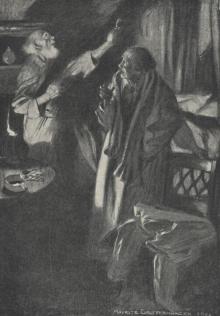 The Monkey's Paw
The Monkey's Paw Little Masterpieces of American Wit and Humor, Volume II
Little Masterpieces of American Wit and Humor, Volume II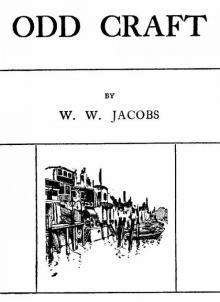 Odd Craft, Complete
Odd Craft, Complete The Lady of the Barge and Others, Entire Collection
The Lady of the Barge and Others, Entire Collection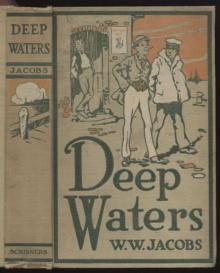 Deep Waters, the Entire Collection
Deep Waters, the Entire Collection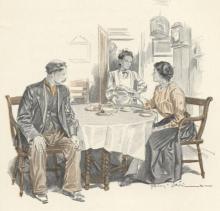 Three at Table
Three at Table Light Freights
Light Freights Night Watches
Night Watches The Three Sisters
The Three Sisters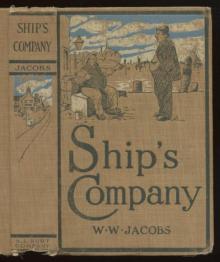 Ship's Company, the Entire Collection
Ship's Company, the Entire Collection His Lordship's Leopard: A Truthful Narration of Some Impossible Facts
His Lordship's Leopard: A Truthful Narration of Some Impossible Facts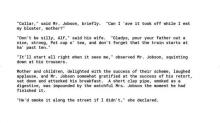 Fine Feathers
Fine Feathers My Man Sandy
My Man Sandy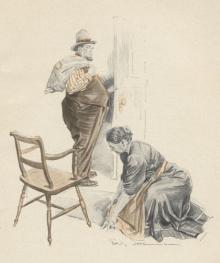 Self-Help
Self-Help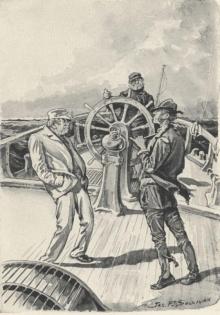 Captains All and Others
Captains All and Others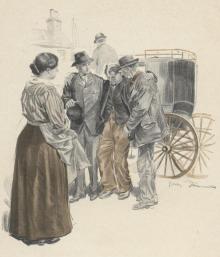 Back to Back
Back to Back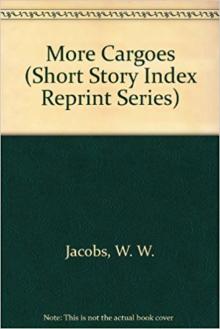 More Cargoes
More Cargoes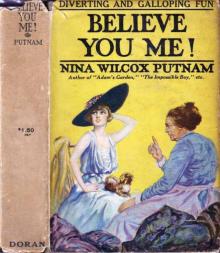 Believe You Me!
Believe You Me!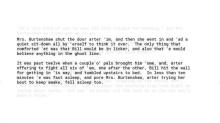 Keeping Up Appearances
Keeping Up Appearances The Statesmen Snowbound
The Statesmen Snowbound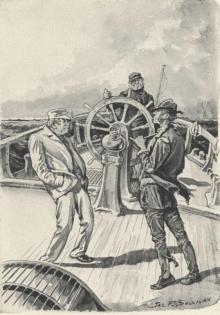 An Adulteration Act
An Adulteration Act The Old Soldier's Story: Poems and Prose Sketches
The Old Soldier's Story: Poems and Prose Sketches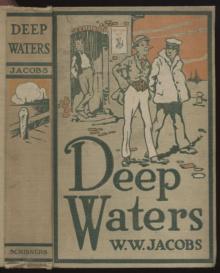 Husbandry
Husbandry Love and the Ironmonger
Love and the Ironmonger The Old Man's Bag
The Old Man's Bag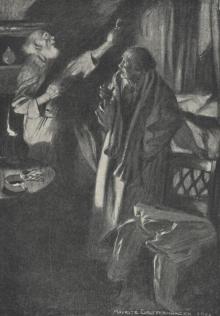 Dirty Work
Dirty Work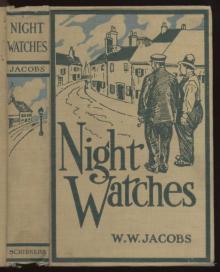 Easy Money
Easy Money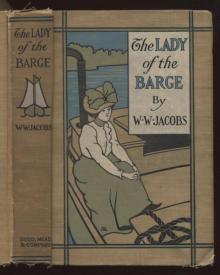 The Lady of the Barge
The Lady of the Barge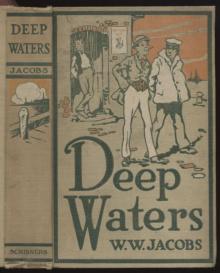 Bedridden and the Winter Offensive
Bedridden and the Winter Offensive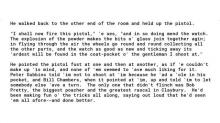 Odd Charges
Odd Charges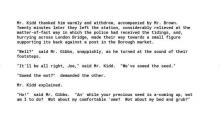 Friends in Need
Friends in Need Watch-Dogs
Watch-Dogs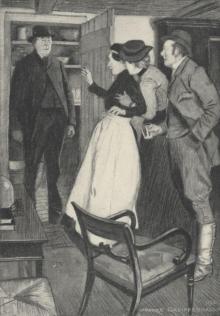 Cupboard Love
Cupboard Love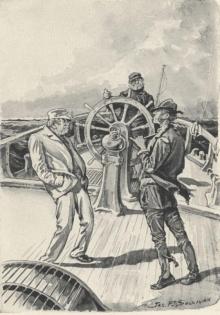 Captains All
Captains All A Spirit of Avarice
A Spirit of Avarice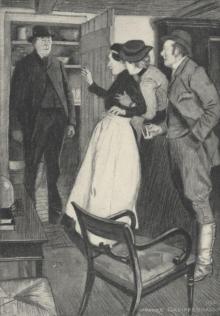 The Nest Egg
The Nest Egg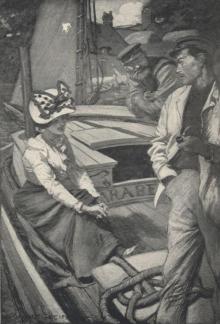 The Guardian Angel
The Guardian Angel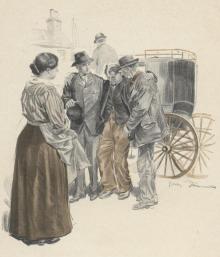 The Convert
The Convert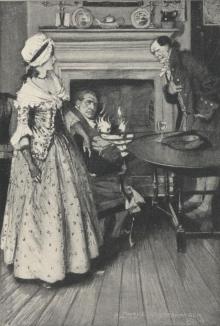 Captain Rogers
Captain Rogers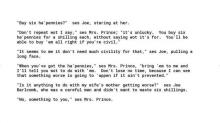 Breaking a Spell
Breaking a Spell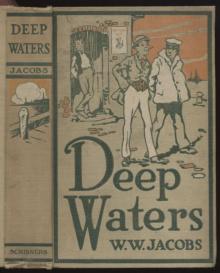 Striking Hard
Striking Hard The Bequest
The Bequest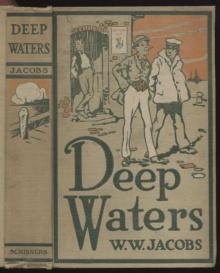 Shareholders
Shareholders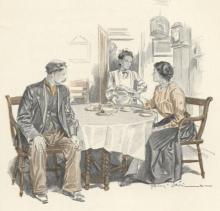 The Weaker Vessel
The Weaker Vessel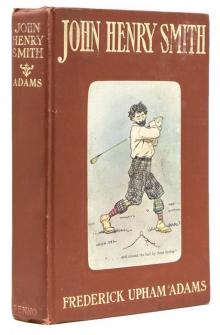 John Henry Smith
John Henry Smith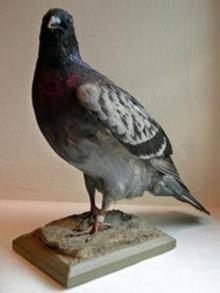 Four Pigeons
Four Pigeons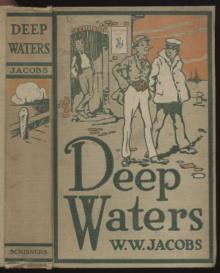 Made to Measure
Made to Measure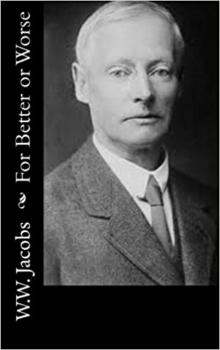 For Better or Worse
For Better or Worse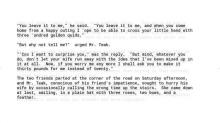 Fairy Gold
Fairy Gold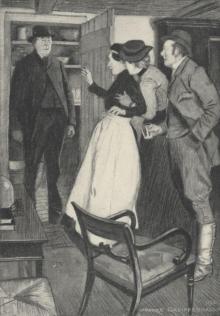 Family Cares
Family Cares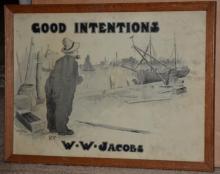 Good Intentions
Good Intentions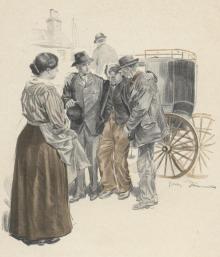 Prize Money
Prize Money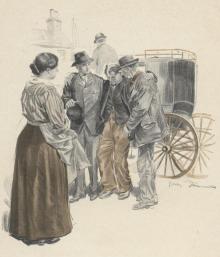 The Temptation of Samuel Burge
The Temptation of Samuel Burge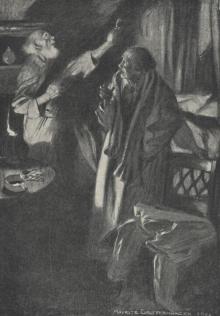 The Madness of Mr. Lister
The Madness of Mr. Lister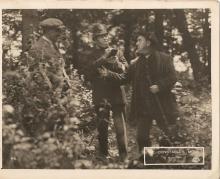 The Constable's Move
The Constable's Move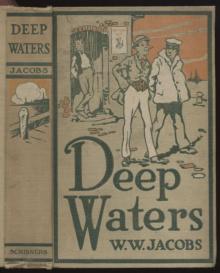 Paying Off
Paying Off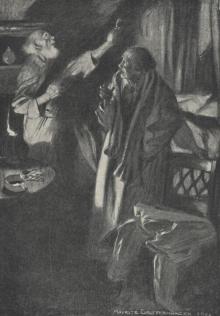 Double Dealing
Double Dealing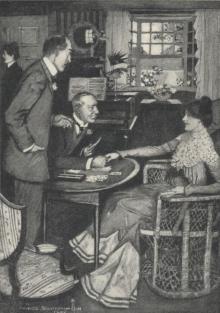 A Mixed Proposal
A Mixed Proposal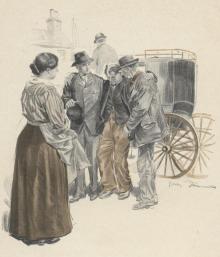 Bill's Paper Chase
Bill's Paper Chase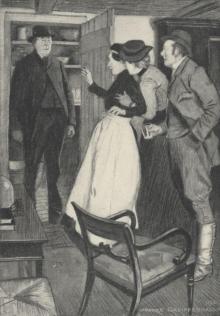 The Changing Numbers
The Changing Numbers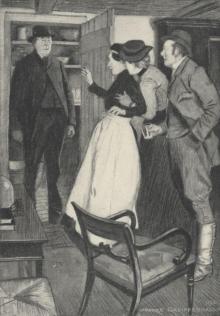 Over the Side
Over the Side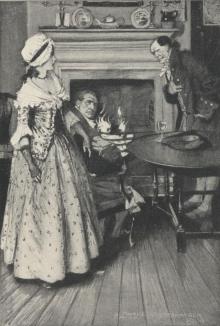 Lawyer Quince
Lawyer Quince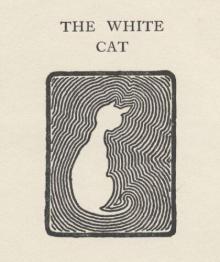 The White Cat
The White Cat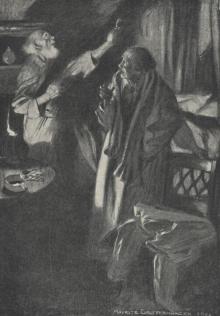 Admiral Peters
Admiral Peters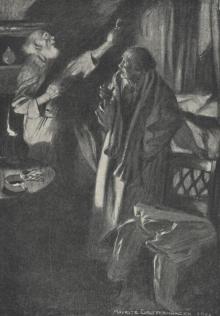 The Third String
The Third String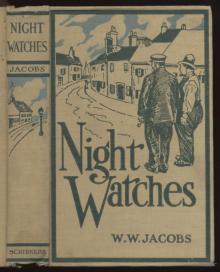 The Vigil
The Vigil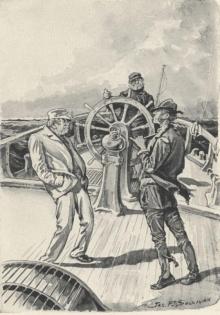 Bill's Lapse
Bill's Lapse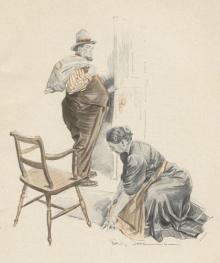 His Other Self
His Other Self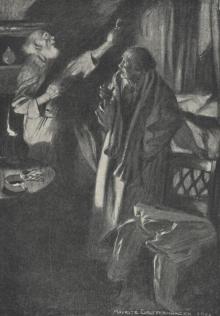 Matrimonial Openings
Matrimonial Openings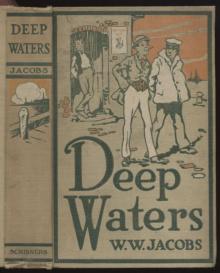 The Substitute
The Substitute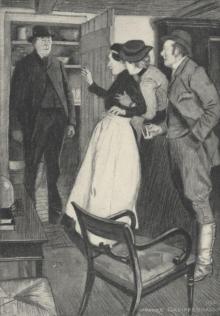 Deserted
Deserted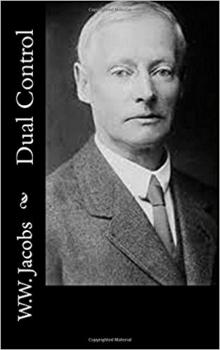 Dual Control
Dual Control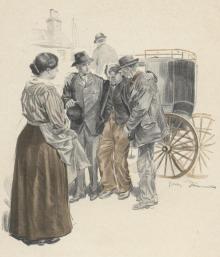 Homeward Bound
Homeward Bound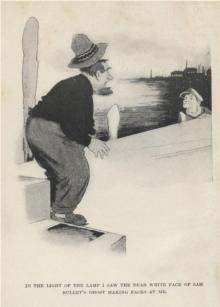 Sam's Ghost
Sam's Ghost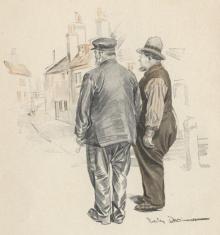 The Unknown
The Unknown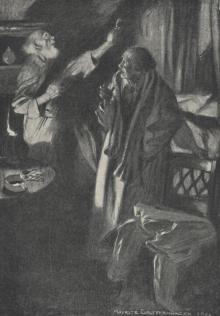 Stepping Backwards
Stepping Backwards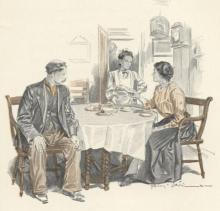 Sentence Deferred
Sentence Deferred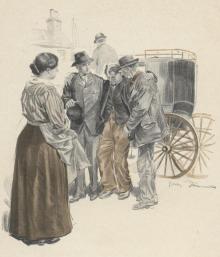 The Persecution of Bob Pretty
The Persecution of Bob Pretty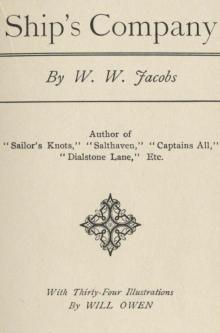 Skilled Assistance
Skilled Assistance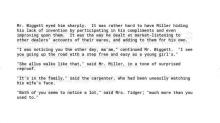 A Golden Venture
A Golden Venture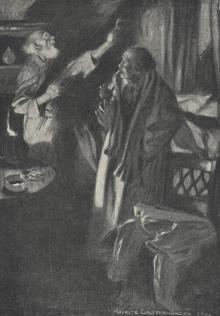 Establishing Relations
Establishing Relations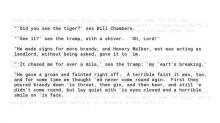 A Tiger's Skin
A Tiger's Skin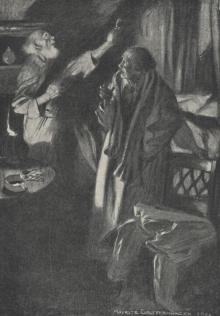 Bob's Redemption
Bob's Redemption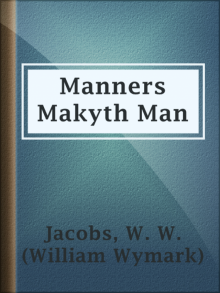 Manners Makyth Man
Manners Makyth Man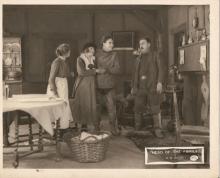 The Head of the Family
The Head of the Family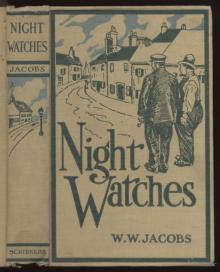 The Understudy
The Understudy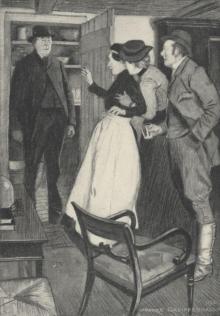 Odd Man Out
Odd Man Out Once Aboard the Lugger-- The History of George and his Mary
Once Aboard the Lugger-- The History of George and his Mary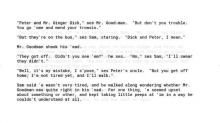 Peter's Pence
Peter's Pence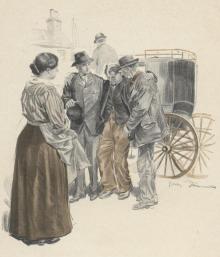 Blundell's Improvement
Blundell's Improvement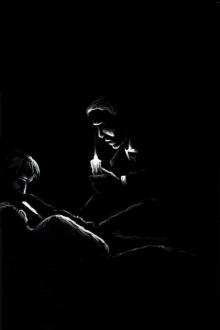 The Toll-House
The Toll-House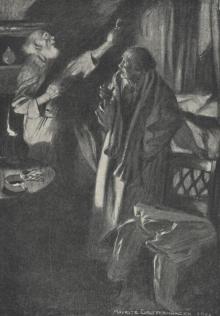 Dixon's Return
Dixon's Return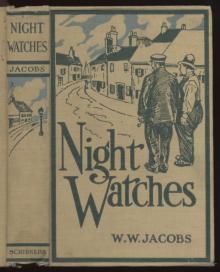 Keeping Watch
Keeping Watch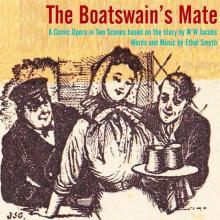 The Boatswain's Mate
The Boatswain's Mate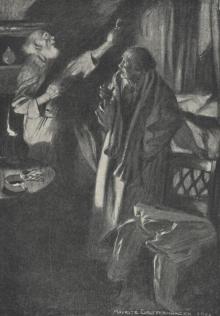 The Castaway
The Castaway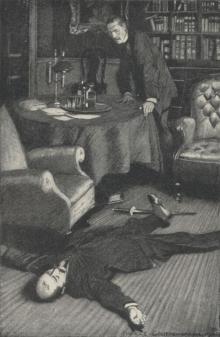 In the Library
In the Library The Monkey's Paw and Other Tales Of Mystery and the Macabre
The Monkey's Paw and Other Tales Of Mystery and the Macabre